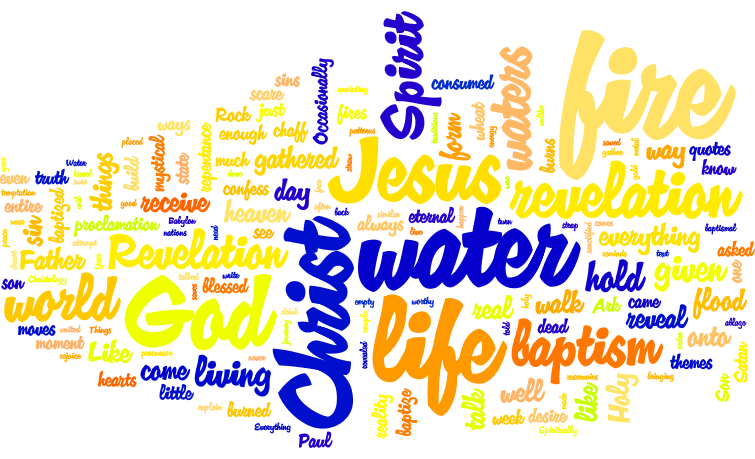
Sermon Text: Matt 5:6, Rev 6:10, Rev 7:9, Lord’s Prayer, Apostles Creed, All Saints Day
Full Text of Sermon
A Lutherans we are trained to think in terms of paradoxes in tension. Here is what I mean by that. The big tension paradox is law and gospel. The law kills, yet is necessary to show us the gospel which makes alive. The gospel without the law just confirms people in self-righteousness. Think the self-esteem movement of today. That is the perfect example of gospel without law. It essentially says that God accepts you just the way you are. Used in the context before the law, that is deadly and leads to a bunch of the dysfunctions we see in our culture today. Likewise the law without the gospel doesn’t work. For a while you get better people as they struggle to keep the law, to be holy. But eventually they figure out it is a rigged game. Hey, I can’t do this!?! That is the proper place for the gospel message of God accepts you through Jesus Christ. Law and gospel go together and the Lutheran emphasis at least in America has been on the proper distinction between Law and Gospel. That is the name of Walther’s LCMS-famous book.
And that works and is true if your primary goal is salvation of the individual. And don’t get me wrong, that is important. But the gospel is about more than my personal Jesus. The gospel is the proclamation of Jesus as Lord. The gospel is the proclamation of the resurrection of all flesh. And when you are proclaiming that – that is law and gospel at the same time.
In this sermon I’ve got a section that I labeled gospel in the text. First it is all scripture. Second it is a listing of the question of the prophets and martyrs – “How long?” How long until the church or people of God is perfected? How long until the martyrs receive justice? How long until the Lordship of Christ is acknowledged by all? To the believer that is pure gospel. The Spirit has already called us by the gospel, enlightened us with His gifts, and placed us on the walk of sanctification. We struggle now and long for that day when we don’t. How long is a cry for justice. For God to act. But that same proclamation if you don’t have faith in the work of Christ is either just lunacy or stark terror. The same proclamation works as law. Either it is dismissed as not applicable. (If we say we have no sin we deceive ourselves – 1 John 1:8). Or it should strike us to the core. What if that is true? What if Christ is Lord, and I don’t acknowledge that? What does this Lord want?
The same words, the proclamation of Jesus is Lord is either the most consoling Gospel or the most damning law at the same time. The saints share a communion of hearing that proclamation as Gospel and longing for the day when the church at rest and the church militant are joined in the church Triumphant marching after the King of Glory.
Podcast: Play in new window | Download






